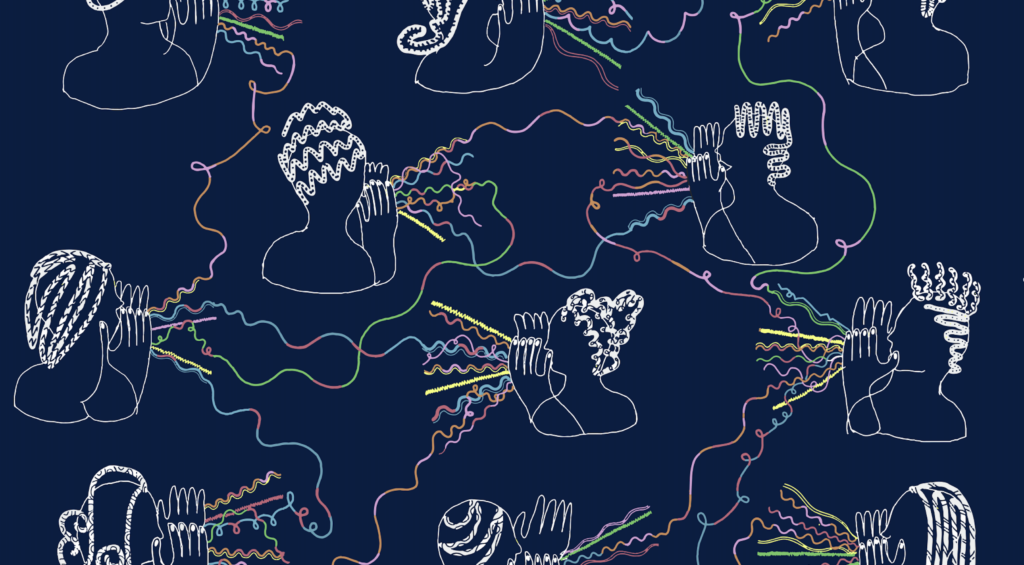The Earth Commons Institute hosted their inaugural ECo Talk Sept. 1 featuring Allen Collins, a marine research zoologist.
The event was the first in a newly established series of “ECo Talks,” which aim to highlight work being done by researchers, policy experts and innovators to address the environment’s most prominent challenges, and will take place every Friday of the Fall 2023 semester from 11 a.m. to 12:30 p.m. in the Arrupe Multipurpose Hall.
Rebecca Helm, an assistant professor in the Earth Commons and one of the ECo Talks organizers, said the goal of the series is to educate the Georgetown community on topical ecological and sustainability issues.
“The ECo Talks are a central part of the Earth Common’s mission. Our collective goal is to put the green in the blue and gray. A weekly meeting of minds, a gathering place to learn and grow, is critical,” Helm told The Hoya.
Collins, the first speaker of the series, directs the National Systematics Lab under the National Oceanic and Atmospheric Administration (NOAA). His research focuses on marine wildlife such as cnidarians, placozoans and sponges, often allowing him to collaborate with other institutions, including the Smithsonian Museum of Natural History.

According to NOAA, scientists estimate that 91% of ocean species have yet to be classified. Collins and his team of research zoologists are working to change that.
Collins’ research is part of the field of systematics, which entails the discovery, naming and documentation of new marine species. Collins’ systematics work involves detailed morphological and genetic analysis to establish evolutionary relationships between species.
“We are constantly identifying things, we put names on them and classify them by their evolutionary relationships,” Collins said during his ECo Talk. The team recently discovered and named a new species of comb jellyfish using remote underwater imaging technology.
Recent developments in genetic technology allow Collins’ team to better understand the evolutionary history of marine life. Collins shared that his students sometimes struggle to classify species of jellyfish using morphology.
“The characteristics always overlapped with each other, one species couldn’t be differentiated from another,” Collins said. “But with genetics, they are relatively clear to discern.”
By creating “genetic barcodes,” or unique identifiers for species, Collins’ team can determine the evolutionary relationships between species by comparing shared sections of DNA.
“Through genetic barcoding you can learn about species boundaries,” Collins said. “There are lots of cases in which people have sequenced a single species many times from many different island groups, and it turns out that there’s many different species. They look the same, you can’t tell them apart, but they are distinct evolutionary lineages,” Collins said.
Collins’ research on complex environmental systems illuminated another example of a community whose collaboration had meaningful impacts — his research team.
“I was just struck by the sheer number of people that were actually involved in this effort. We have all these NOAA operations: the crew on the ships, they have this satellite telepresence enabled, ship to shore communication from person to person,” Collins said.
Collins and his team also contribute to the extensive collection of specimens belonging to the Smithsonian National Museum of Natural History. These contributions help researchers view evolutionary changes from a historical perspective.
“Every specimen is a point in space in time, creating basic biodiversity that will outlive researchers,” Collins said. “That’s the key to understanding change through time.”
Ryan Cafritz (GRD ’25), a graduate student in the Environment and Sustainability Management Program described the impact of Dr. Collins’ encouragement to pursue your interests.
“Dr. Collins’ mantra of chasing a ‘feeling of awe’ to get where he is today was a unique and fun perspective on how to live life,” Cafritz said. “I didn’t realize I would be getting invaluable life lessons from a talk about jellyfish.”
Helm said she admires Collins’ ability to inspire audiences to value biodiversity and ecosystem conservation.
“What I admire most about Dr. Collins is his sincere love of the natural world. Unlike many of us, Dr. Collins did not start out loving science,” Helm said. “He worked in the financial sector for a long time before discovering his passion for nature. I suspect it’s partly this later-found love that makes him so sincere, his enthusiasm so utterly infectious.”
Collins continues to share stories about the incredible creatures and biodiversity he encounters amongst a wide audience and said he hopes to inspire a renewed sense of appreciation for the environment.
“I think that it is a really different perspective. It’s that they are so inherently interesting things, whether they’re going to cure cancer or whether they sting you or hurt you,” Collins said. “And that creates an ethical imperative to protect and to not wipe these things off the face of the planet.”








